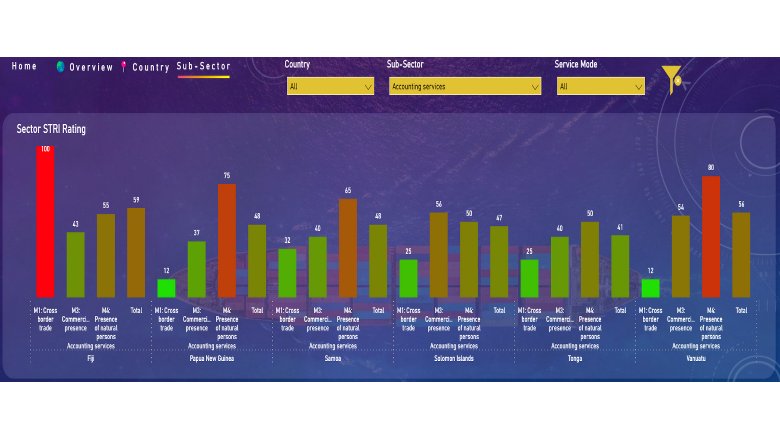The World Bank and the Pacific Community (SPC) have created a new dashboard to document the restrictions in services trade across Fiji, Papua New Guinea, Samoa, Solomon Islands, Tonga and Vanuatu.
What is ‘trade in services’ and why is it important?
International trade in services, such as tourism and shipping, plays a vital role in driving economic growth in the Pacific. Currently, the service sector makes up about 60 percent of all exports in the Pacific, and services exports play an important role in foreign exchange earnings. However, the importing of services is equally important for growth in a region that is isolated from more established service-based economies.
Increasing service imports can reduce the cost of value-added services and promote growth, creating a positive ripple effect across an economy. However, many countries across the world have various regulatory restrictions, such as licensing requirements and limitations on foreign investments. These restrictions can create barriers to trade in services and slow economic growth.
Unlike tariffs on physical goods, which are easy to identify, barriers in the service sector often hide within other laws and regulations, making them difficult to pinpoint. These obstacles need to be identified and mapped so they are better understood. Governments can then consider addressing them to unlock their full potential and drive more sustainable growth in the Pacific.

